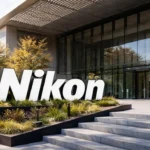Key Points
- Google signs the first corporate agreement to purchase power from multiple small modular reactors (SMRs) to meet rising AI-related electricity demand.
- Kairos Power will provide 500 megawatts from six to seven SMRs, with the first reactor expected to be online by 2030.
- Google’s senior director for energy emphasizes nuclear’s role in delivering clean, round-the-clock power to meet growing AI power demands.
- Other tech giants, including Amazon and Microsoft, have also turned to nuclear power due to AI’s growing energy needs.
Alphabet’s Google has made history by signing the world’s first corporate agreement to purchase power from multiple small modular reactors (SMRs) to meet the rising electricity demand driven by artificial intelligence (AI). The deal is with Kairos Power, a company specializing in next-generation nuclear technology. Google plans to source 500 megawatts of power from six to seven reactors by 2035, marking a significant commitment to nuclear energy as part of its clean energy strategy.
Kairos Power aims to bring its first SMR online by 2030, with subsequent reactors operating over the next five years. However, the agreement’s financial details, including the specific locations of the plants, have not been disclosed. Unlike traditional large nuclear reactors, SMRs are designed to be smaller and more flexible. They have a reduced power output but the potential for faster, cheaper construction due to factory-built components.
Michael Terrell, Google’s senior director for energy and climate, emphasized the company’s motivation for choosing nuclear energy. “We believe nuclear can play an important role in helping meet our demand for clean, round-the-clock power,” Terrell said in a call with reporters. The rising energy demands of AI and the need for reliable, low-carbon energy sources have driven several tech companies to turn to nuclear power this year.
This deal is part of a broader trend, with other tech giants making similar moves. In March, Amazon purchased a nuclear-powered data center from Talen Energy, while in September, Microsoft signed a power deal with Constellation Energy to help restart a unit of the Three Mile Island nuclear plant. The shift to nuclear energy is being driven by the exponential growth of AI, which is expected to cause U.S. data center power consumption to triple by 2030, requiring roughly 47 gigawatts of additional power, according to Goldman Sachs estimates.
However, challenges remain for Kairos and other SMR developers. The company will need permits from the U.S. Nuclear Regulatory Commission (NRC) and local agencies to begin construction, which could take years. While SMRs are touted as a cheaper alternative to large nuclear plants, critics argue that the lack of scale could make them expensive and still pose the nuclear waste problem.
Despite these challenges, Google boldly commits to an “order book framework” with Kairos rather than purchasing one reactor at a time. This strategy is intended to speed up SMR development and send a strong demand signal to the market. Mike Laufer, CEO of Kairos Power, expressed confidence that this novel approach will help deliver projects on cost and schedule, making nuclear energy a more viable option for the future.




